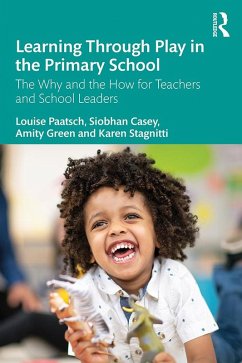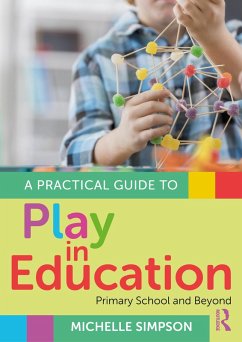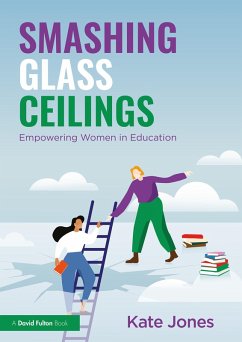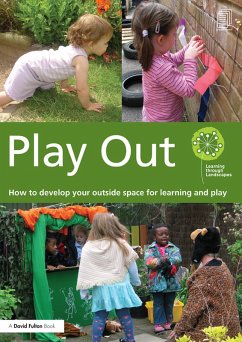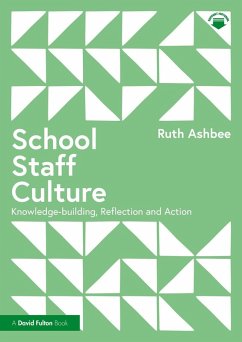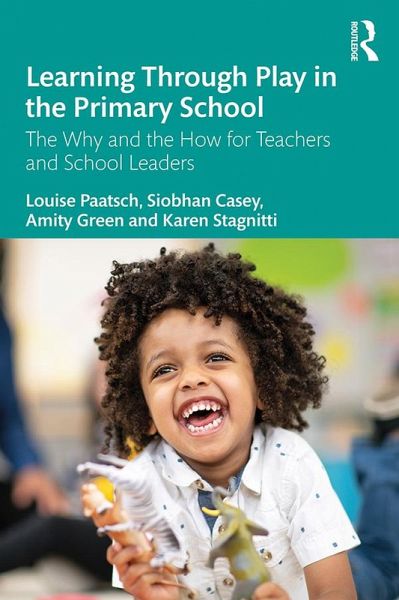
Learning Through Play in the Primary School (eBook, PDF)
The Why and the How for Teachers and School Leaders

PAYBACK Punkte
13 °P sammeln!
Drawing on research to inform practice, this book is written for teachers and school leaders looking for guidance on how to successfully implement a play-based curriculum in the early years of primary school.Learning Through Play in the Primary School unpacks the "why" and the "how" of embedding play-based pedagogies in the first three years of school. The book is divided into two sections, the first drawing on the latest research to outline the importance of play in a child's development and emotional engagement in learning. The second section provides practical support and examples for how t...
Drawing on research to inform practice, this book is written for teachers and school leaders looking for guidance on how to successfully implement a play-based curriculum in the early years of primary school.
Learning Through Play in the Primary School unpacks the "why" and the "how" of embedding play-based pedagogies in the first three years of school. The book is divided into two sections, the first drawing on the latest research to outline the importance of play in a child's development and emotional engagement in learning. The second section provides practical support and examples for how to embed play in a school curriculum to enhance young children's learning. The practical section covers setting up an environment for guided play, demonstrating how to assess learning from play-based activities and how to report on outcomes, supported by checklists, vignettes, and case studies.
Written to facilitate the implementation of play-based learning in the primary school years, this book will be an essential guide for pre- and in-service teachers and school leaders.
Learning Through Play in the Primary School unpacks the "why" and the "how" of embedding play-based pedagogies in the first three years of school. The book is divided into two sections, the first drawing on the latest research to outline the importance of play in a child's development and emotional engagement in learning. The second section provides practical support and examples for how to embed play in a school curriculum to enhance young children's learning. The practical section covers setting up an environment for guided play, demonstrating how to assess learning from play-based activities and how to report on outcomes, supported by checklists, vignettes, and case studies.
Written to facilitate the implementation of play-based learning in the primary school years, this book will be an essential guide for pre- and in-service teachers and school leaders.
Dieser Download kann aus rechtlichen Gründen nur mit Rechnungsadresse in A, B, BG, CY, CZ, D, DK, EW, E, FIN, F, GR, HR, H, IRL, I, LT, L, LR, M, NL, PL, P, R, S, SLO, SK ausgeliefert werden.




